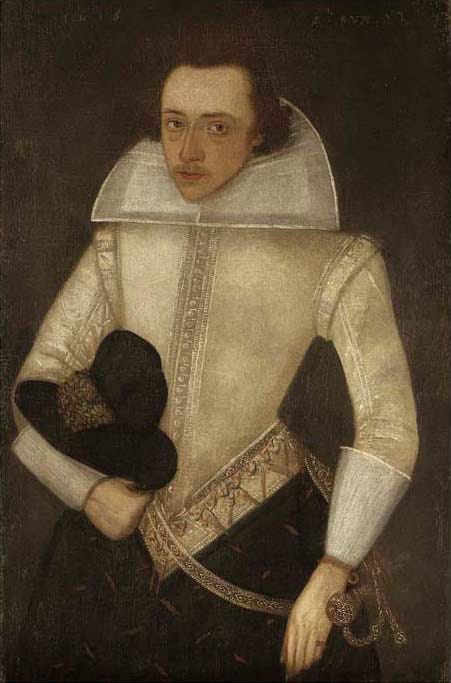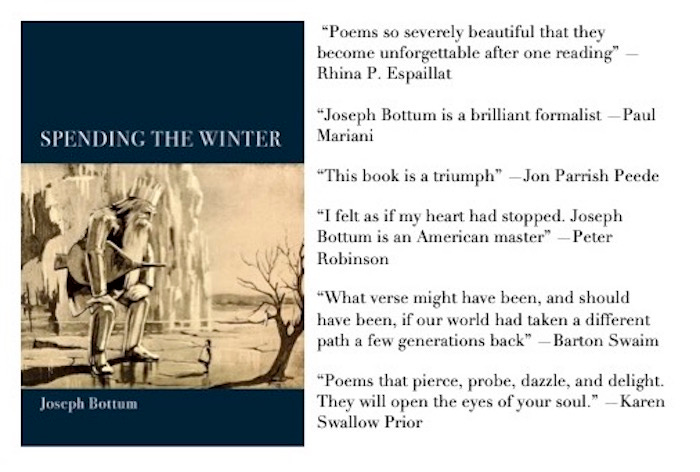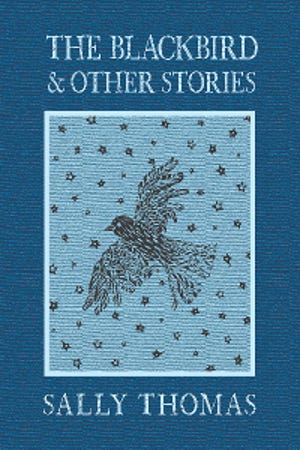
Tichborne’s Elegy
by Chidiock Tichborne
My prime of youth is but a frost of cares, My feast of joy is but a dish of pain, My crop of corn is but a field of tares, And all my good is but vain hope of gain. The day is gone and yet I saw no sun, And now I live, and now my life is done. The spring is past, and yet it hath not sprung, The fruit is dead, and yet the leaves are green, My youth is gone, and yet I am but young, I saw the world, and yet I was not seen, My thread is cut, and yet it was not spun, And now I live, and now my life is done. I sought my death and found it in my womb, I lookt for life and saw it was a shade, I trode the earth and knew it was my tomb, And now I die, and now I am but made. The glass is full, and now the glass is run, And now I live, and now my life is done. ═══════════════════════
(In the early weeks of Poems Ancient and Modern, we presented to our small initial audience some poems that seem worth reviving for the larger number of readers the newsletter has now. And so, from time to time in recent months, we have revisited a few of those poems from our archive — including today’s consideration of Chidiock Tichborne’s “Elegy.”)
“There’s something especially moving,” the poet Brad Leithauser wrote in a 2013 New Yorker essay, “about those poets who, in the mind of the individual reader, have effectively created one poem.” However many poems of Conrad Aiken you might read, really there’s only one poem: “Morning Song,” from “Senlin.” Think of John McRae, and what comes to mind is not a whole body of work, but “In Flanders Fields.” You say, Christopher Smart; I say, “My Cat Jeoffry.”
And if I say, Chidiock Tichborne, inevitably you will respond, “My prime of youth is but a frost of cares.” Though other poems of his are extant — “The Housedove,” for instance, and this poem to his equally doomed friend Anthony Babington — Tichborne (1562–1586) is similarly remembered for a single poem. Today’s Poem is a lament for life’s brevity, elevated to the level of tragedy by the fact that its twenty-four-year-old author composed it in the Tower of London, on the eve of his execution.
The son of recusant parents, Tichborne had run afoul of English anti-Catholic law before, for the offense of smuggling religious items into the country on his return from an unsanctioned trip abroad. But in June of 1586, he was recruited as a minor player into the Babington Plot, the objective of which was to assassinate the Protestant Elizabeth I and set her Catholic cousin, Mary, Queen of Scots, on the English throne.
All too often it’s the little people who get caught, and so it happened with Tichborne. When the plot was discovered, most of the conspirators scattered. Tichborne, with a leg injury, remained in London to be hunted down by Elizabeth’s spymaster, Sir Francis Walsingham, and consigned to trial in August 1586. There he received a conviction and sentence: high treason and death.
Walsingham subsequently arrested the others as well, including the group’s ringleader, Anthony Babington. He saw them all executed, the great and the small, on September 20, 1586. As Tichborne mounted the scaffold, to be hanged, cut down still alive, and disemboweled, he is reported to have said, “I am descended from a house, from two hundred years before the Conquest, never stained till this my misfortune.”

The night before his execution, Tichborne wrote a letter to his wife, Jane, whom he fondly called “Agnes,” a common Tudor endearment echoing the Latin word for lamb. The letter included the verses which we know today as “Tichborne’s Elegy.” Its accomplishment bespeaks an age when any educated person, from the queen on down, could write competent verse. That competence meant that when somebody felt like turning out a little poetry, to mark an occasion or offer tribute to a friend, he could. And when somebody urgently needed to say something, he could say it well. In Tichborne’s case, the inevitable overwhelming of his emotion, on that night when he bade farewell to all the love, hope, and joy of his young life, receives the necessary tempering of craft to raise it to the level of art.
The poem consists of three sestets, or six-line stanzas, rhymed ababcc, in regular iambic pentameter. Each line poses a paradox, a pair of oppositions: “My youth is dead, and yet I am but young,” he writes. “And now I die, and now I am but made” — all seeming impossibilities, but cruelly true. Each stanza ends on the sad, time-conflating refrain “And now I live, and now my life is done.” He had risked this, a reader might say, but the grief of this single poem, its refrain resonating across centuries, begs our pity for a poet’s voice, silenced even as it spoke.






The poet was 24. At 24 he both could pen such a poem and take part in a real high level conspiracy. I compare that right now to having a 22 year old and a 19 year old lazing around the house apparently all summer. Neither of whom seem to be able to write an effective resume to wait tables. I'll give the 16 year old shuttling himself between athletic fields all day all summer a break. That might be as quixotic as killing Elizabeth I, but it is a plan being worked. The poet's conception of youth feels more modern or more like ours where life might not start until you are thirty-something and we should get a free pass. Where as surely Walsingham would have thought something like "you were old enough to make choices and now are paying for those choices like a man." There is something off with our conception of youth.
I am most certainly among those readers who are moved by those one-hit-wonder poets. There are many poets who known to the poetry world as having a body of work; however, in greater layman’s culture they only really know in the for one poem (like Hayden’s “Those Winter Sundays”) if they are to be known at all. In Tichborne’s case, he hadn’t much other than this sad beauty which likely would not have been written except for the immediate circumstances that caused his death.
How ironic is it that Chidiock Tichborne’s death sentence ultimately gave him poetic immortality?
Also, did you hear A. E. Stallings do her explication of this poem in her latest Oxford lecture? She also gave some love to “tares” — a lovely rhyming word that sadly is too archaic to reasonably use on the regular.